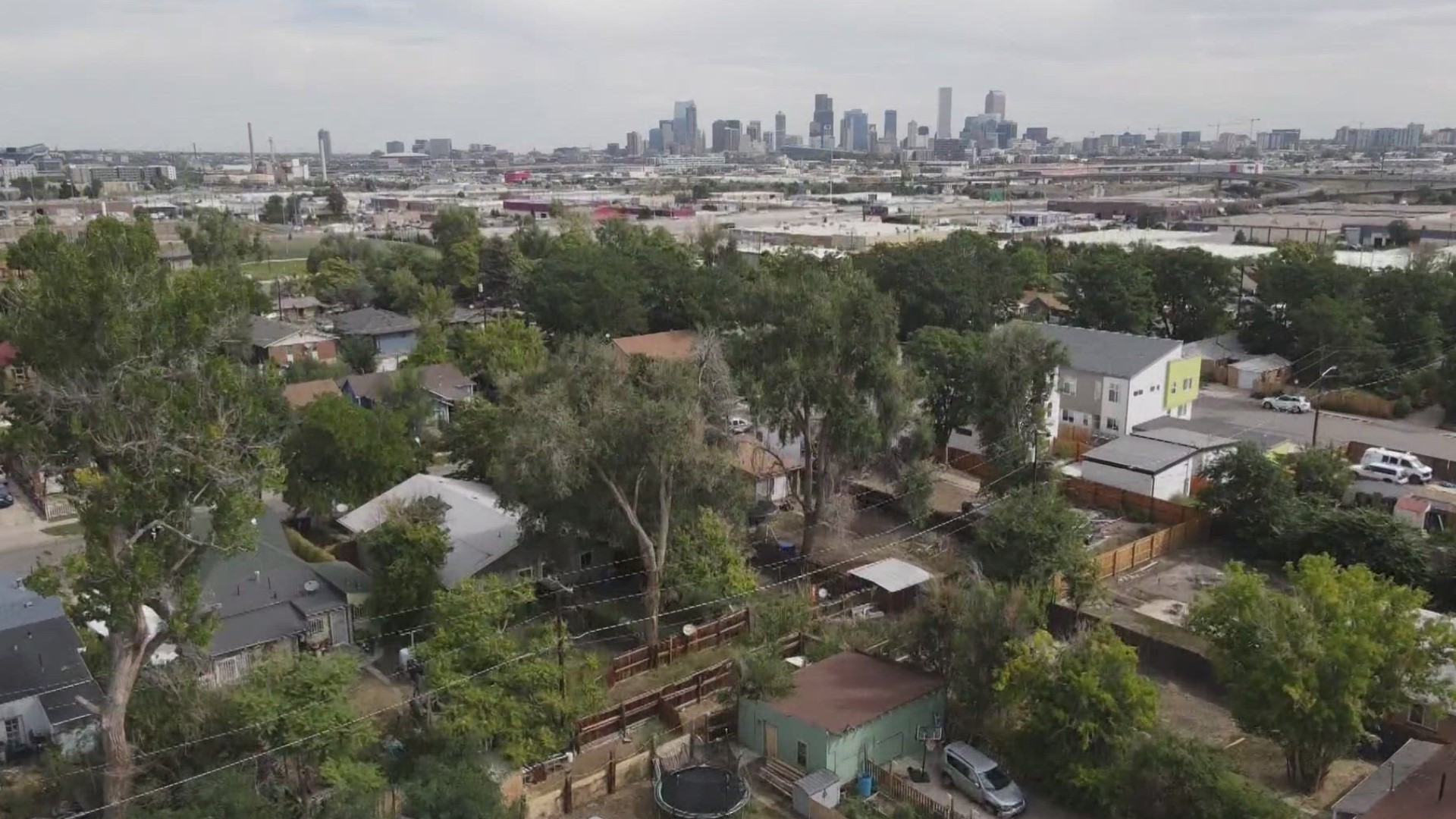How important are trees or parks when it comes to cooling neighborhoods in the heat? It's a question researchers have been digging into for years.
"We were really looking at heat exposure and health outcomes," said Andrew Newman, a project scientist at the National Center for Atmospheric Research (NCAR) in Boulder and co-author of a new study on urban heat stress.
The study found glaring racial disparities.
"The poorer neighborhoods and minority populations experience higher heat indices," he said.
Using NCAR's advanced computer modeling, the team estimated the temperature and humidity of the air in the urban environment. That's the temperature that people actually feel.
The study showed people who live in predominantly Black neighborhoods are exposed to air that is about a half-degree warmer than the city average. In contrast, in predominantly white neighborhoods, air temperature is cooler than the city average by nearly half a degree.
That might not sound like much, but Newman said the impacts can be significant, especially when people in the warmer neighborhoods don't have the resources, like air conditioning, to deal with extreme heat.
"We need to really think about how we design green spaces, how we design neighborhoods, ... keep the trees that we have, plant new trees, ... do different things to try and mitigate heat," he said.
The reasons for these disparities go back to the 1930s when government policies tended to cluster minority populations in dense neighborhoods with few trees and parks.
"It's more concrete, more buildings ... lower albedo, so they absorb more heat from the sun and there's less ways to dissipate that and so it's just ... hotter," Newman said.
All the more reason to plant more trees and build more parks in neighborhoods that need them, he said.
"It's a win-win," he said. "These are policies that can improve quality of life for everyone and help take a little bit of bite out of our anthropogenic climate change problem."
In Boulder, city leaders are already mapping out where they need to plant more trees.
More 9NEWS Colorado climate coverage:
SUGGESTED VIDEOS: Colorado Climate
9NEWS+
9NEWS+ has multiple live daily shows including 9NEWS Mornings, Next with Kyle Clark and 9NEWS+ Daily, an original streaming program. 9NEWS+ is where you can watch live breaking news, weather updates, and press conferences. You can also replay recent newscasts and find videos on demand of our top stories, local politics, investigations and Colorado specific features.
To download 9NEWS+ on Roku search for KUSA.
To download 9NEWS+ on Fire TV search for 9NEWS.

